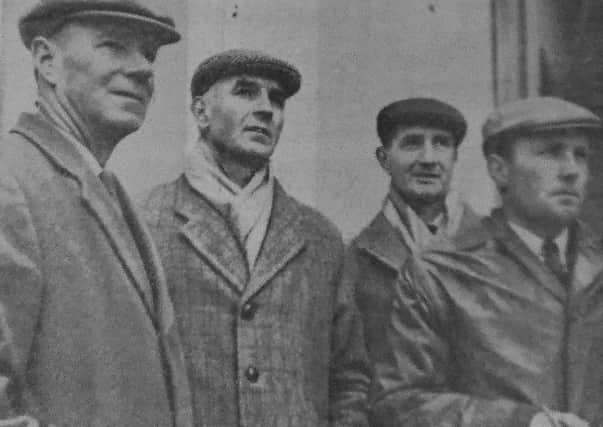BYGONE DAYS: Teachers’ union ‘irresponsible’, claims Ulster Farmers’ Union


“The charges are grossly unfair,” the statement declared, and it went on on to point out that throughout the whole of the war period and since there has been the fullest co-operation between local farmers, the education authorities, and teachers In the matter of arranging the school holidays to suit local conditions, and the UFU had had no complaints from any of Its 200 branches that these arrangements were not working satisfactorily.
The statement commented: “Such Instances, as referred to at the INTO conference, If such ever existed at all, could only arise where some teachers arranged the school holidays to suit themselves and ignored entirely the best interests of the community in which they live.
Advertisement
Advertisement
“In so far as the allegations of exploitation are concerned, those who were loudest In their protests appear to have admitted that the children were able to earn £3 per week, plus meals. To call that ‘exploitation’, is just sheer reckless talk, which is something not usually associated with the proceedings of any responsible organisation.”
“Completely without foundation” is how the Minister of Education Mr H C Midgley, had discredited the suggestion made at the conference that, “the Ministers of Education and Agriculture had collaborated to ruin school attendance in certain areas during the potato harvest”.
The minister pointed out: “During the war years and subsequently until 1950 the Ministry of Education agreed to a request from the Ministry of Agriculture that school children in rural areas should, if necessary, be allowed special leave of absence from school for a limited period, to enable them to give assistance on farms during harvesting operations.”
Most favourable harvest in a decade noted by News Letter
Reviewing the 1949’s agricultural this week in the News Letter noted: “In our Trade Review of 1948 we said that in almost every section of Northern Ireland’s agricultural industry a marked advance was made in that year.
Advertisement
Advertisement
“This statement might, very appropriately, be repeated in summing-up the progress and achievements of the industry In 1949.
“We all know how the farmers and farm workers in Northern Ireland responded to the demands made upon them during the war.
“Their efforts to produce more food were even more successful than anybody could have anticipated, and there has not been any abatement of their zeal in the post-war years.
“They are not only sending large quantities of food to Great Britain, but are doing their utmost to assist in the restoration of the United Kingdom’s financial independence and economic prosperity.
Advertisement
Advertisement
“The Northern Ireland harvest of 1949 was the most favourable for at least decade.
“Hay-saving was finished early, and for once did not interfere with flax-pulling and the subsequent grain harvest.
“Lack of rain during the early growing season caused farmers to fear that crops generally would light.
“These fears were realised only in part, however, and the season advanced better yields were reported. Particularly this was the case with the main potato crop.
Advertisement
Advertisement
“Rain came just in time, and in the end the estimated yield was 7.1 tons per acre, as compared with 7.9 tons per acre for 1948; but the area under potatoes fell from 209,611 acres in 1948 to 187,510. There was also a fall in the area under oats (374,110 acres), and the estimated yield was 18 cwt to the acre, as against the average of 20.1 cwt in the previous year.”